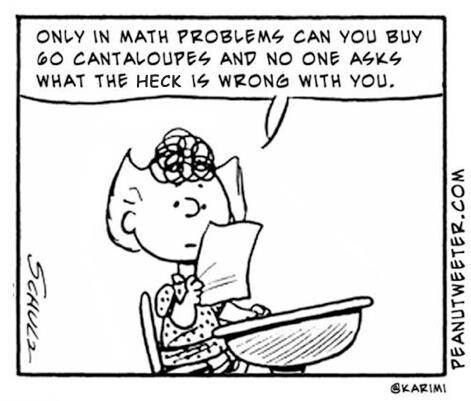Privilege and Oppression Revisited
- Matt Felton-Koestler
- Jan 31, 2018
- 4 min read
This is a follow up on an earlier post about privilege and oppression in mathematics education. I have been wanting to follow up and expand on some of the ideas in that post based on questions and feedback I have received. Recently a colleague told me she assigned the post as an assignment in one of her courses and asked if I wanted to see the questions her students wrote. I told her yes and that I’d be willing to answer some of them if they wanted to pick/synthesize a few questions to send me. Instead of just responding to them I decided to respond through my blog as a way of revisiting this topic.
Update on the Attacks on Math Ed Scholars
First, however, I wanted to touch on the ongoing attacks on mathematics education scholars and the outpouring of public and professional support for these scholar’s work. My original post was written in response to attacks on Dr. Rochelle Gutiérrez’s work. The history of the attacks on her work as well as the strong outpouring of support can be found here.
Following this Campus Reform seems to be searching for mathematics education articles focused on the issue of Whiteness. They have since targeted Dr. Laurie Rubel for her recent piece. She has tweeted about some of the hateful emails and phone messages she has received as a result. The history of these attacks and the public and professional outpouring of support is documented here. Importantly, she also discusses the paper from her perspective and discusses some of the backlash in a podcast:
I understand that not everyone agrees with the ideas presented by these authors (and on my blog). I’m also a strong advocate of academic debate. However, the portrayals of Drs. Guttiérrez’s and Rubel’s work by Campus Reform and other conservative media sites has been… superficial at best. They appear to deliberately cherry pick quotes they know are likely to be inflammatory without deeply reading, understanding, or exploring the overarching argument being made.
One point Dr. Rubel raises (which seems to be what caught Campus Reform’s attention and is particularly relevant to this post) relates to the belief in a “meritocracy” in U.S. society in general, and in mathematics education in particular. Belief in a meritocracy is the belief that individual success depends on the amount of ability or effort one puts in. Thus, when people fail it is often framed in terms of their individual weaknesses. Recently, this has resulted in a lot of emphasis on improving students’ grit and perseverance. This lets society (including schools) off the hook because we can blame kids (and/or their families and communities) for their failures instead of considering what (explicit and implicit) systems we have created (whether purposefully or not) to systematically make it more difficult for poor, Black, and Latinx students* to excel in our educational system (such as re-segregating schools; underfunding schools for poor students and students of color; providing poor students and students of color with less experienced teachers; etc.).
The above point is particularly relevant to this blog post, but it’s not actually the main focus of the article. For anyone interested in issues of equity and social justice in mathematics education I strongly encourage you to read Dr. Rubel's article and/or watch the podcast above. It provides an excellent summary of different approaches to equity, how they are interrelated, and how teachers engage with these ideas.
*A Word on Terminology
I and a number of scholars find it difficult to talk about race with the language we have available. I had used "non-white" in a number of places and Dr. Rubel pointed out why she finds this to be problematic (see comments section below). After reflecting on her comments and talking to some other colleagues I have made some changes to the language throughout.
In some places I use "Black and Latinx", especially when I am thinking of research or data that refer to these groups in particular—I have decided to capitalize all races and ethnicities to highlight that they are social constructions. I use Latinx in place of Latino, Latino/a, or Latin@ as a gender-neutral term that allows for all genders (not just two).
In other places I use "people of color" or "students of color." One reservation I have with this term is that it suggests (to me) that White is not a color/race. One form of White privilege is the ability to view yourself as "just a person."
The reason above is why I had used "non-white" before, but that term serves to center Whiteness and it's also not a term many people of color use to describe themselves, and it's not a term that's likely to feel particularly good, so I've moved away from it.
Expanding on the Original Post
I received three questions from my colleague's students and I address each of them in a separate post:
Comment
Leave a comment below, reply to my Tweet, or comment on my Facebook post about this.
Short link for this post: https://goo.gl/xKKx6j


Comments